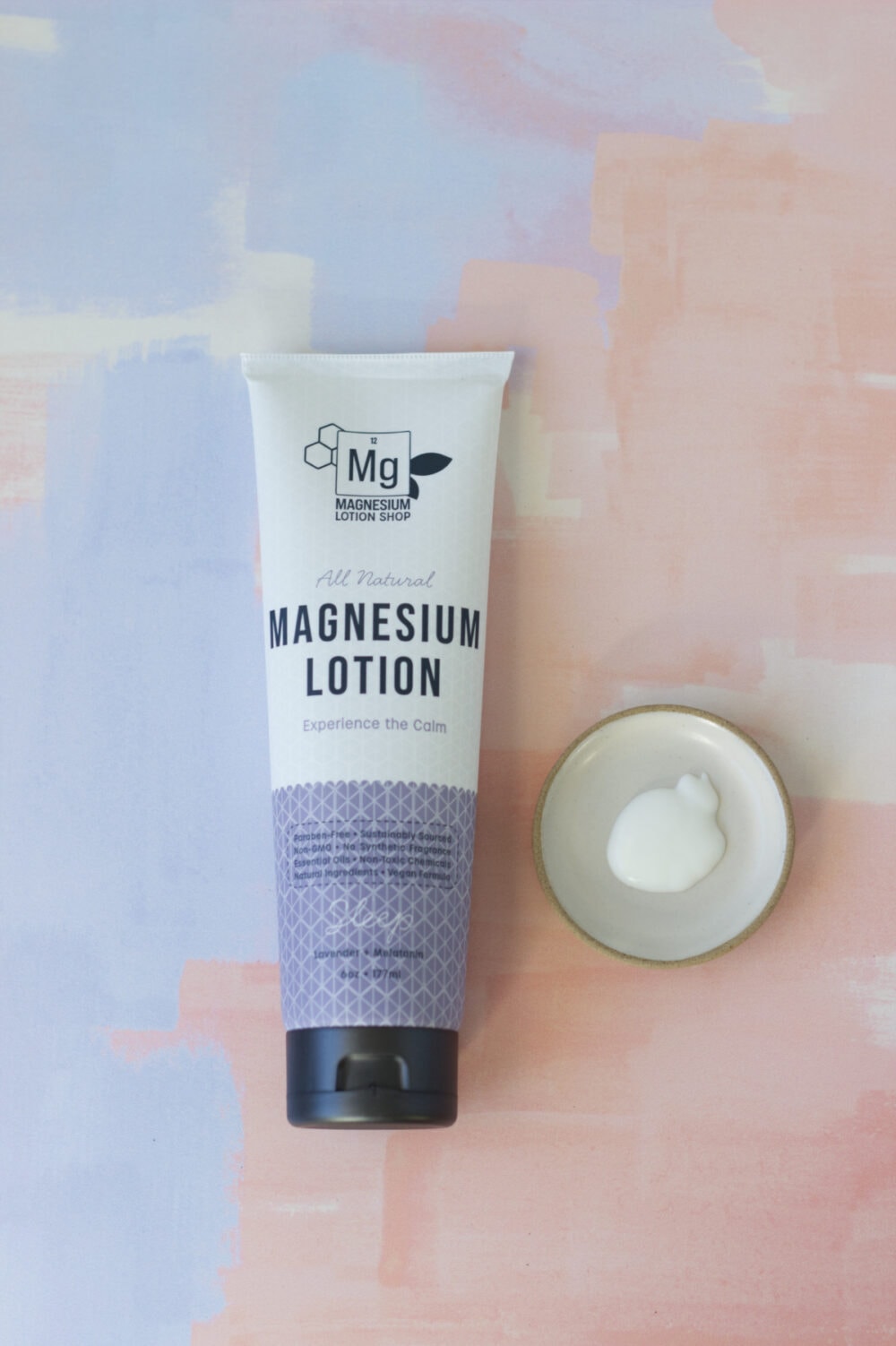Benefits of Magnesium and How to Get More
The benefits of magnesium, and a lot of other nutrients, for that matter, are often touted all across the internet. Every possible thing is hyped up to make you feel better, look better, have more concentration, be a superhero. Not that last one, but you get my point.
You may think it’s all a hype game until you experience a deficiency of your own. There is a lot of truth to the claims across the web. For example, magnesium is actually really good for our bodies. Most of us don’t get enough magnesium in our diets, so it’s important to supplement it.
This is not medical advice. I’m simply sharing what I learned after I received

Without enough magnesium, our bodies don’t function up to their full potential, so today, we’re talking about the benefits of magnesium and how to get more of it in our diets.
Symptoms of Low Magnesium
Low magnesium is a common problem across the country. About 75% of us aren’t getting our recommended daily intake of magnesium.
Magnesium plays a key role in various body functions and systems, so inadequate levels of it can impact our bodies’ ability to be their best.
Health problems that go along with low magnesium include diabetes, poor absorption, chronic diarrhea, celiac disease, and hungry bone syndrome. That’s a lot of serious-sounding medical issues.
It’s important to know the symptoms of low magnesium, so we can spot it early and do something about it.
Muscle Twitches and Cramps
Muscle twitches and cramps can be signs of magnesium deficiency. Scientists think the symptoms are caused by a greater than normal flow of calcium in nerve cells, overexciting them.
Muscle twitches and cramps can also be caused by stress or caffeine, so don’t jump to any conclusions just yet.

Mental Disorders
A lack of magnesium can cause nerve dysfunction and promote mental problems in some people.
These can include apathy, an increased risk of depression, and the possible worsening of anxiety. In severe cases of low magnesium, delirium can be a symptom.
Osteoporosis
Low magnesium can weaken bones directly, and it also lowers calcium levels in the blood. Both of these contribute to an increased risk of osteoporosis.
Fatigue and Muscle Weakness
Fatigue and muscle weakness, usually experienced together, can be a sign of low magnesium levels. The muscle weakness is caused by the loss of potassium in muscle cells caused by low magnesium levels.
High Blood Pressure
Several animal studies have shown that magnesium deficiency may increase blood pressure and promote high blood pressure. A few observational studies have suggested that low magnesium levels or low dietary intake might raise blood pressure.
Asthma
Recently, some scientific studies have shown that low magnesium might be associated with asthma. Scientists believe that too much calcium in the muscles lining the airways of the lungs can cause airways to constrict.
Irregular Heartbeat
An imbalance of potassium levels in the heart muscle caused by low magnesium is believed to be responsible for arrhythmias in some people with low magnesium levels.
Some people with congestive heart failure were shown to have lower magnesium levels and experienced significant heart function improvement with given magnesium injections.
Again, if you are experiencing any of these symptoms, please see your doctor before trying anything on your own.
Health Benefits of Magnesium
Now that we know some of the major risks associated with low magnesium, let’s talk about the benefits of magnesium.
We know that too little magnesium is bad, so let’s look at what we can expect if we get ourselves to our daily recommended intake.
Overall Improvement in Body Functions and Systems
Magnesium is needed by every cell in our body to function properly. Because of this, magnesium is involved in over 600 reactions in our body.
When we have enough magnesium in our bodies, these reactions are far more effective and efficient. Magnesium is involved in:
- Converting food into energy.
- Creating new protein from amino acids.
- Helping create and repair DNA and RNA.
- Controlling muscle movement.
- Regulating neurotransmitters. Basically, telling our entire bodies what to do.
Boosts Exercise Performance
Magnesium has been shown to improve exercise performance. It helps move blood sugar into our muscles and dispose of lactate, which builds up during exercise and causes fatigue.
Fights Depression
Low magnesium can put us at a higher risk of depression, but adequate levels of it can help keep our mood even.
I can vouch for this after trying Natural Calm years ago. For me, the drink noticeably balanced my mood quite a bit.
Helps Control Type 2 Diabetes
Studies have shown that people with higher magnesium intake are 47% less likely to develop diabetes, and high-dose magnesium supplementation was shown to improve blood sugar levels in people with Type 2 Diabetes.
Lowers Blood Pressure
Studies have shown that magnesium can help lower blood pressure. Take it with a grain of salt, though, because these studies were conducted on people who already had high blood pressure.
Anti-Inflammatory Benefits
Magnesium supplementation and eating magnesium-rich foods has been shown to reduce the markers for chronic inflammation in people.
Helps Prevent Migraines
Some studies have shown that increasing magnesium intake can help reduce or prevent migraines. Even when not prevented the symptoms were lessened.
Reduces Insulin Resistance
One of the major benefits of magnesium is reducing insulin resistance. Insulin resistance can cause metabolic syndrome and Type 2 Diabetes. Studies have shown that increased magnesium intake can help reduce insulin resistance.
Improves PMS Symptoms
Magnesium has been shown to improve mood, reduce water retention, and reduce other symptoms of PMS. So, yay!
How to Get More Magnesium
Magnesium Lotion
If magnesium supplements don’t agree with you, you can absorb it through your bloodstream with

Simply rub a few pea-sized amounts of magnesium lotion on your body before bed to enjoy the benefits of magnesium without any negative effects.
Studies have even shown that applying topical magnesium boosts the level in the body better than supplements.
The
Read the story about how this family-owned business evolved from a hobby to a business by finding relief for one of their own ailments!
Years ago I tried Magnesium Bath Flakes along with my grandma who was suffering with arthritis. We both realized the benefits of topical magnesium at that time.

You can also use a magnesium spray. Simply spritz it on your feet before bed at night. Easy to travel with and apply anytime!
Foods Rich in Magnesium
So we know that low magnesium is bad and that there are lots of benefits of magnesium. So the next question becomes how to get more of it into our diet.
Of course, supplementation can play a huge part in that, but we can also choose foods that are rich in magnesium. Foods that are generally rich in magnesium include:
Again, in addition to adding more of these into your diet, you can also take a magnesium supplement. With 75% of the population being magnesium deficient, it’s probably a good idea to supplement because the recommended daily dose for men is 400 – 420 mg per day, and it’s 310 – 320 mg per day for women. That’s a lot of magnesium.
Take Advantage of the Health Benefits of Magnesium
It’s important to get enough magnesium in our diets. It plays such a big part in so many body functions that having adequate levels is important.
Unfortunately, most of us don’t get enough of it in our diets. Start eating more magnesium-rich foods and maybe pick up a magnesium supplement to start getting the health benefits of magnesium that you need.
Pin this image to save and spread the word!

Treat Yourself:
- How to choose the best home DNA test.
- Tips to limit stress around the holidays.
- Keto gift guide for people on a low-carb diet.
The tubs of







